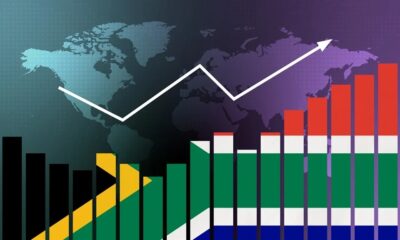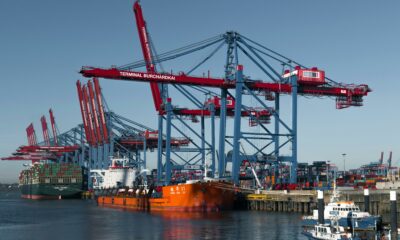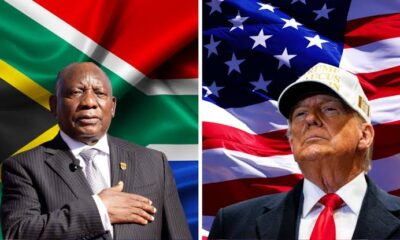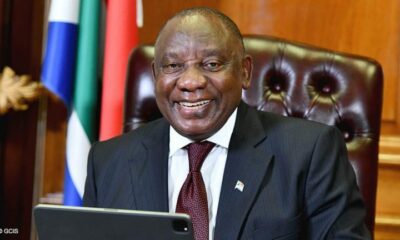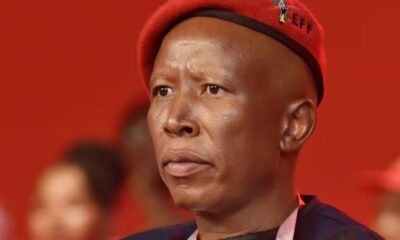News
Ramaphosa Stands Firm: “South Africa Will Not Be Bullied” in US Tariff Row
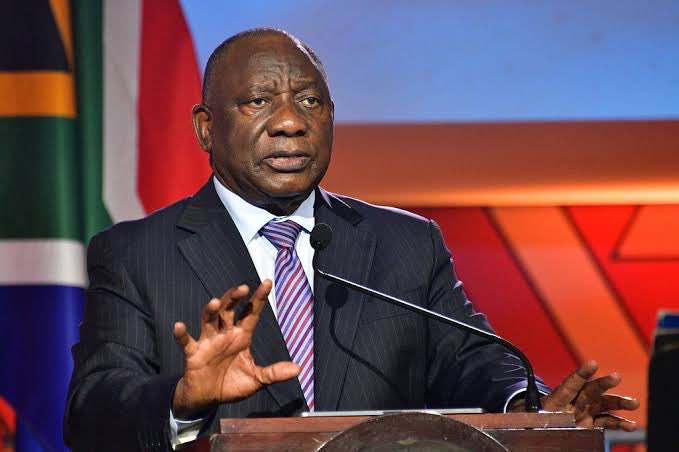
A bold message in Parliament
President Cyril Ramaphosa has drawn a clear line in the sand: South Africa will not bow to Washington’s tariff pressure. Speaking in the National Assembly, the president said Pretoria is determined to protect its economy, secure fair trade, and chart a course that prioritises national interests.
The comments came after EFF leader Julius Malema pressed him on the damage US trade restrictions could inflict. Ramaphosa’s response was unflinching: “South Africa will not be bullied by anyone.”
Why this matters: billions on the line
The United States is South Africa’s second-largest trading partner, with the relationship stretching back decades. South Africa sends minerals, motor vehicles, pharmaceuticals, and fresh produce to the US, while importing American petroleum, poultry, aircraft parts, and medical equipment.
The scale is huge. Over 600 American companies currently operate in South Africa, while 22 South African firms have established a footprint in the USmaking South Africa the biggest African investor in the American economy. Tariffs, therefore, aren’t just numbers on paper; they ripple into jobs, supply chains, and the livelihoods of thousands.
Government’s response: relief and resilience
Ramaphosa told MPs that cabinet has already signed off on support measures to cushion local businesses affected by the tariffs. These include funding from the Localisation Support Fund, working capital support, and export competitiveness programmes designed to help firms modernise equipment and remain globally competitive.
But the president also cast the challenge as an opportunity to pivot. “We are accelerating efforts to open new export markets, including Latin America, Asia, and the Middle East,” he said, pointing to the African Continental Free Trade Area (AfCFTA) as a cornerstone of this diversification. He also urged South Africansconsumers, businesses, and the state aliketo prioritise buying local.
Between Washington and Pretoria
Ramaphosa confirmed that senior officials have been dispatched to the US to negotiate directly with lawmakers, business leaders, and the Trump administration. “We will get the best deal for South Africa,” he told Parliament, balancing firmness with a nod to the historic trade relationship.
At the same time, he stressed this is about principle as much as economics. “This is not a moment for retreatit is a moment for resilience. Our sovereignty and economic interests are not negotiable.”
Public and political reaction
Ramaphosa’s combative tone drew mixed reactions on social media. Some South Africans applauded him for “finally standing up to Trump,” calling it a rare show of economic independence. Others worried that tough talk without quick results could worsen tensions and leave local exporters caught in the crossfire.
Economists caution that while standing firm is important, South Africa must tread carefully, its access to US markets underpins thousands of jobs, especially in auto manufacturing and agriculture.
This showdown is more than a diplomatic spat. It speaks to South Africa’s long-standing struggle to balance global partnerships with the need to defend sovereignty and uplift local industries. For Ramaphosa, the tariff fight is also a chance to reset the country’s trade strategy and prove that South Africa is not just a junior partner, but a player with its own leverage.
Whether his gamble pays off will depend not only on Washington’s next move, but also on how quickly Pretoria can deliver relief at home and diversify abroad.
{Source: IOL}
Follow Joburg ETC on Facebook, Twitter , TikTok and Instagram
For more News in Johannesburg, visit joburgetc.com

